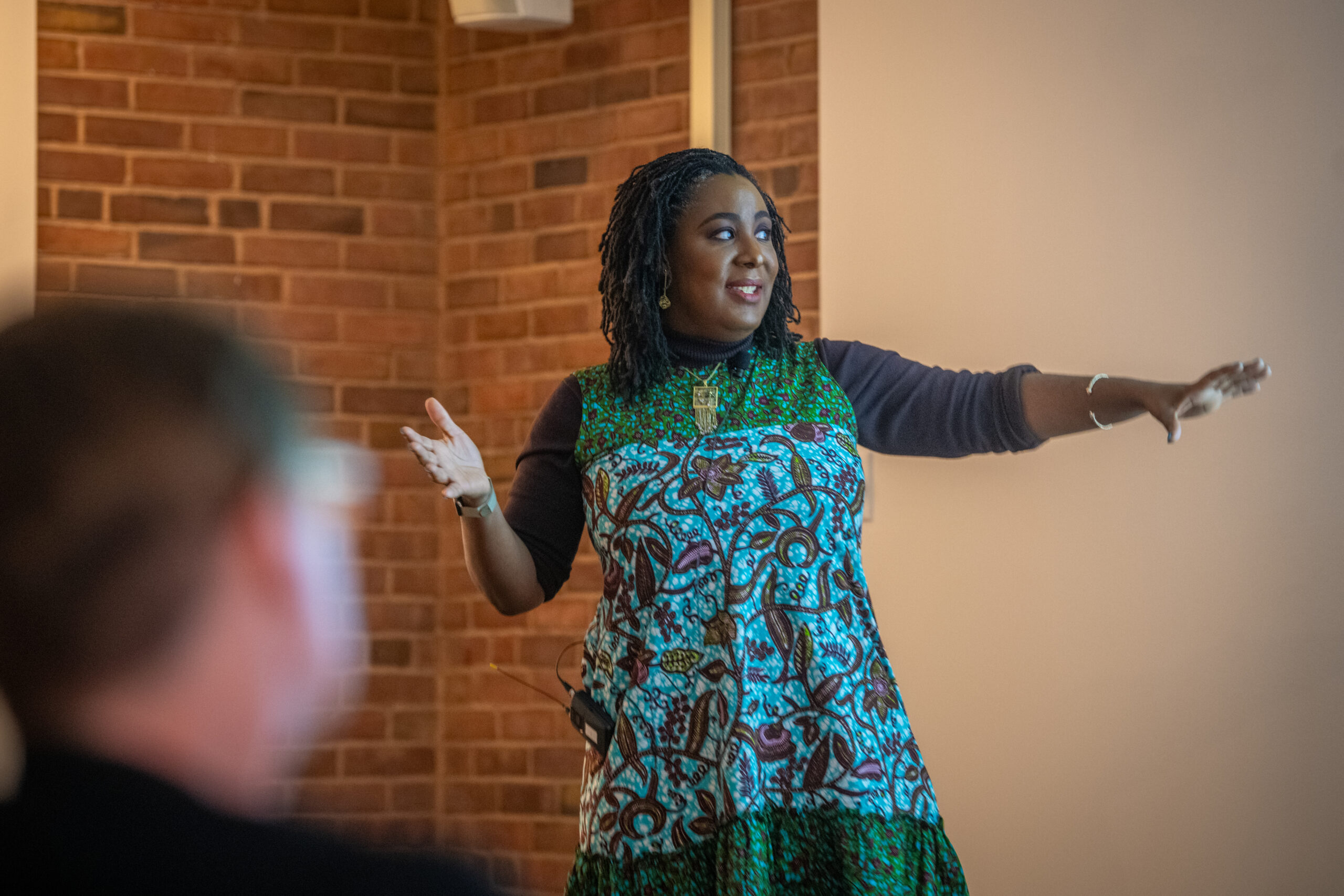‘Language is a verb’

To Uju Anya, learning a language is a transformation. The Carnegie Mellon University professor of applied linguistics, critical sociolinguistics, and critical discourse believes learning and ‘languaging’ is an intrinsic part of personal growth.
“We are not who we are because of the languages we speak. We language to identify and to become who we eventually are identified as,” Anya said during Clark’s Language, Literature, and Culture Department’s speaker series in November. “This is why we cannot separate identity from language.”
“When you learn new things, who you are changes because what you’re able to do changes.”
In a presentation titled “Race Matters in World Language Study: The Case of African Americans Speaking Blackness in Brazil,” Anya shared research insights on multilingualism, language learning experiences, and learning how to language.
“We typically conceptualize language as grammars and vocabularies; however, language is something we do,” Anya said. “Language is a practice, social action. Language is a verb.”
African American students “face racism from the jump” because of “deficit notions” about how they communicate, Anya said. One such notion is that Black students speak “bastardized English” and thus do not have the ability to succeed in learning language.” Race matters in language classrooms, she said, because when Black students feel engaged, they can connect with language and reconstruct concepts of self-perception.
Because Anya sees very little research on African Americans in her field, she decided to study the experiences of four 19- to 22-year-old Black students who were learning Portuguese in Salvador, Brazil. The study illustrates that language shapes our understanding of our identity and our reality. It helps educators and students understand what it takes to successfully learn a language and fills an epistemological gap.
One of the study’s subjects, Nina, an English and Spanish speaker, said she had to determine how to communicate her Black identity in Brazil. In one instance, when speaking to native Brazilians, she called herself “Negra” — which she was raised to understand means “Black.” In Nina’s culture, “Morena” also means black, but with a negative connotation. While she was learning Portuguese, Nina realized the meanings are reversed in Salvador, a region that is more than 80 percent Afro-Brazilian.
Anya said that upon hearing Nina call herself “Negra,” the native speakers responded, “Chill, chill, chill. Negra is poor. It’s dirty. You look fine. You look like you got money, education. You’re ‘Morena.’”
Nina struggled to appropriately describe her identity as she learned the different linguistic understandings of Blackness in a place that did not share her same American-Dominican linguistic landscape. Nina’s experience transformed how she communicated her Blackness, which supported Anya’s belief that language and identity are malleable and constantly evolving.
“When you learn new things, who you are changes because what you’re able to do changes,” Anya said.


